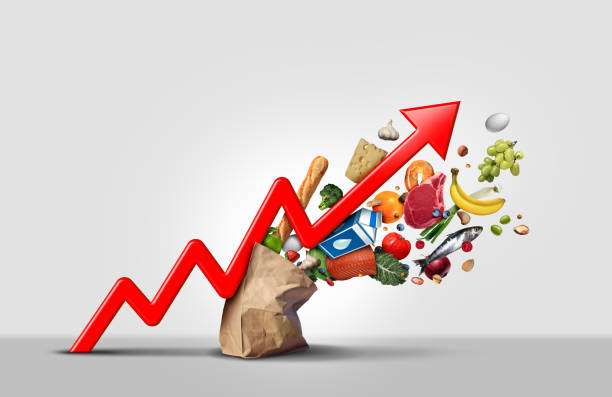Inflation can be a powerful stimulus for economic growth and job proliferation, if managed properly. For example, an increase in the money supply can encourage consumer spending, which in turn can drive up demand for goods and services, resulting in higher output, higher employment levels, and higher wages. Additionally, increased inflation can cause wages to rise faster than the cost of living, leading to a higher standard of living and increased purchasing power. Inflation can also create incentives for businesses to invest in new technology and equipment, which can lead to productivity gains and increased job opportunities. All in all, inflation, when carefully regulated, can have a positive impact on the economy, leading to job growth and a higher standard of living. Here’s a deep dive into how inflation can sometimes be a boon:

1. Trade and Jobs: A Complex Relationship
Inflation, when appropriately implemented, can be a powerful tool for stimulating economic growth and creating jobs. When prices are allowed to rise, it encourages increased production and consumption, resulting in a more vibrant and growing economy. This can be seen in the boost to employment that often follows an uptick in inflation. For instance, the World Bank noted an increase in job creation in India in 2017 following a period of high inflation. Moreover, the resulting increase in purchasing power and consumer demand can lead to an influx of private investment as businesses aim to capitalize on the higher demand for their goods and services.

In order to maximize the impact of inflation on job growth, it is essential that governments take an active role in coordinating policy and adjusting regulations. This includes creating an environment that encourages private investment and promotes trade, as noted by the World Trade Organization (WTO). Additionally, governments must ensure that inflation does not become too high, as this can lead to an erosion of purchasing power and a reduction in economic activity. By carefully managing the rate of inflation, governments can ensure that the economy remains vibrant and job growth is sustained.
2. The Power of Open Economies
Open economies tend to experience more rapid and robust growth compared to their closed counterparts. This growth can often be seen in the form of new job opportunities, as successful companies that benefit from international trade are more likely to increase their workforce. This can be seen in many countries around the world, as increased access to foreign markets has led to new jobs being created in a range of industries, from manufacturing to tourism. Additionally, as inflation can cause prices to rise, wages tend to increase as well, further stimulating job growth and reducing unemployment rates.
3. Trade as a Catalyst
Inflation can be a powerful tool to boost the economy and propel job proliferation. By increasing the purchasing power of consumers, inflation helps to create a vibrant market for goods and services, and incentivizes businesses to invest in new products, services, and technologies. Trade can also act as a catalyst for greater efficiency and productivity, as businesses in open economies have access to a wider range of high-quality, affordable inputs, and the know-how to utilize them. This can lead to greater innovation and competition, motivating businesses to create more jobs and increase wages. Ultimately, these economic forces can result in an improved standard of living, increased economic growth, and greater job opportunities.
4. Competition Breeds Innovation
Inflation can provide a powerful boost to the economy, encouraging businesses to innovate and create new jobs. It can create intense competition in the marketplace, as companies strive to improve their products and services while cutting costs. Companies can draw on ideas from other countries to become more productive, but this can lead to job losses in some industries – a phenomenon known as ‘creative destruction’. Inflation can also lead to more investment in businesses, which can create new jobs and increase incomes, as well as spurring the development of new technologies. Ultimately, inflation can be a powerful tool to drive economic growth and job creation.

5. The Double-Edged Sword of Trade
While trade offers numerous benefits, it’s crucial to recognize its potential downsides. Some sectors and workers might face challenges due to trade. Governments need to implement effective social programs to support these affected workers. For instance, jobs related to trade often offer better compensation than non-trade jobs. In Western Europe, workers in export-oriented companies earn a wage premium over the average wage. Similarly, in the US, the premium is 6%, and in Sub-Saharan Africa, it’s a staggering 34%.
6. The Bigger Picture
Inflation can be a powerful tool for boosting the economy and creating jobs. In open economies, wages tend to be higher than in closed ones, as competition from lower-wage countries can put downward pressure on wages in certain sectors. However, this is not necessarily a bad thing; increased competition can drive employers to create more jobs, leading to greater job proliferation.
For example, when Japan opened its markets to increased trade from China in the 1980s, wages in certain sectors stagnated. However, this opened the door for new businesses and increased job opportunities, helping to create millions of new jobs in Japan. Similarly, increased global competition has helped to create jobs in the United States, where the number of jobs has grown steadily since the late 1980s.
7. Trade’s Role in Poverty Reduction
Trade has played a significant role in reducing poverty in regions like Asia and Africa. In Asia, less than 20% of the population lives in absolute poverty today, a significant drop from 60% in 1975. Similarly, in Africa, fewer than half the people now live in such poverty, marking a historic shift.
In conclusion, inflation can be a powerful tool for stimulating economic growth and creating jobs. By increasing demand for goods and services, businesses must hire more workers to meet that demand, and the extra spending boosts the economy. However, it is important to remember that inflation is a double-edged sword; if it is not managed properly, it can have devastating consequences. A balanced approach that considers both the advantages and challenges of inflation is critical for harnessing its full potential and achieving long-term economic prosperity.










































